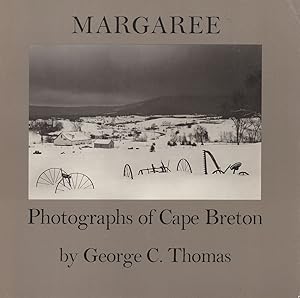Descripción
Signed by author on the copyright page. Minor shelf wear, binding tight, pages clean and unmarked. 54 pages, illustrated with black and white photos. From the introduction: "The Margaree River forms a gentle, winding valley on the north side of Cape Breton Island, Nova Scotia, and flows in to the shallow Gulf of St. Lawrence. This river valley, which is famed for its unspoiled, natural beauty, is populated along its lower thirty miles by families whose ancestors emigrated generations ago from France, Ireland, Scotland, and England.When the long Canadian winter fades, men work the surrounding forests and the fertile valley pastures, and they fish the clear river and the ever-changing sea. With spring?s long anticipated arrival, lumber and pulpwood are cut and hauled to mills, while hers of cattle and flocks of sheep with frisky, new-born lambs graze on seaside slopes and intervales. Men again ten their gaspereaux traps along the river, and fishermen head out for plentiful lobsters as well as cod, hake and mackerel. In summer and fall a steady stream of tourists passes along through this scenic landscape on the Cabot Trail, as persistent salmon anglers migrate to their favored pebbled pools on the Margaree River. But when the harsh, cold winter once more closes in, outdoor work ceases as deep snows fill the forests and the ?big ice? drifts south from the Arctic to cover and still the sea.In 1971, my wife, Lynn Zimmerman, and I moved from Boston to Margaree, where I eagerly listened to my neighbors? nostalgic, mirthful tales of blacksmiths, moonshiners and Mounties, of dauntless schooner captains, mail-sleigh drivers, and farmers who once drove ox teams. Observing the modern, rural communities along the valley, I realized that the last vestiges of a passing lifestyle were vanishing. That earlier way of life appealed very much to me. It spoke of a less complex world, a conserver society, and a way of life which emphasized hard work, intimacy with the earth and nature, and attitudes of pride, independence, and self-sufficiency.The digitized images that follow are of prints that form the nucleus of a large body of negatives and transparencies made in Cape Breton between 1971 and 1979. Photographing and editing are highly selective and personal processes, and these images, from the book Margaree, Photographs of Cape Breton, which I have chosen to publish, represent my own perspective of Margaree. In part, this work is my visual tribute in praise of a once prevalent way of life.". N° de ref. del artículo 230913034
Contactar al vendedor
Denunciar este artículo
![]()
